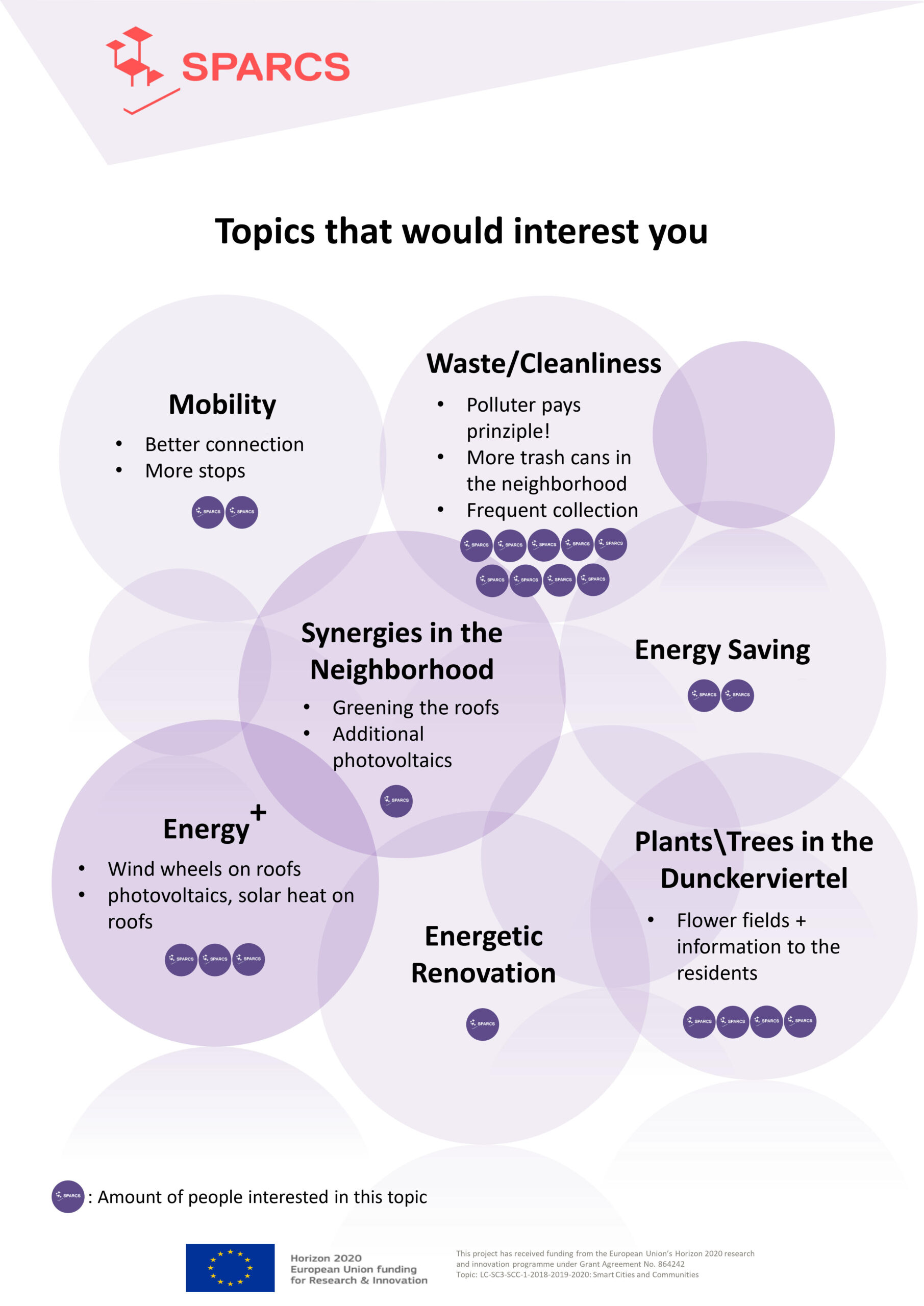Participation in SPARCS – What is in store for the habitants of Leipzig demo district Dunckerviertel?
The first two years of SPARCS-project were concentrated on developing and deploying numerous technical solutions targeting the reduction of the energy consumption and CO2 emissions in densely built urban environment of chosen demo districts. From smart home devices, decentralized heating controllers, mobile apps to photovoltaic panels – each of the innovations contributes to the upper goal of building the energy positive neighborhoods. But a wholesome approach towards sustainability goes far more beyond the technical matters: it is about the communities there are willing to use those instruments and, though a good practice, are encouraged to be a part of the change. SPARCS-team that is responsible for citizen engagement in Leipzig has since 2019 been focused on developing and implementing the low-key participation methodologies that would build a bridge between the acceptance of complex technical solutions and the involved, socially diverse, community.
After a year of co-productive planning on the internal SPARCS-partner level, challenged by the COVID-19 pandemic, the first active steps were made. On September 23rd and October 11th seecon’s employees, Julia Schließauf and Patrycja Sankowska, introduced officially the project on-site. Through a direct contact, backed up by warm beverages and a cake, the members of Leipzig consortium could get in touch with the local community and talk about the project, the targeted goals as well as the expectation of LWB-tenants in respect to the planned deployments. To include as many inhabitants as possible, a stand with a tinker-offer for children supervised by a skilled animator-team was set right next to the main stand, giving also the busy parents an opportunity to engage in the discussion in a relaxed atmosphere. In addition, the residents were encouraged to write down sustainable measures they would to have implemented in their neighborhood. The outcomes and the engagement were beyond the expectation – apart from the SPARCS-related energy matters i. e. scaling up the solar power potential of the building blocks, objectives like better waste management, cleanliness maintenance or greener surroundings were brought onto the (coffee) table.
The whole was preceded by a number of participation and communication activities – apart from the information flyer, a city-wide workshop on energy positive communities during the Sustainability Days 2021 (Ger. Umwelttage 2021), article in the local newspaper as well as numerous social media feeds were conducted.
The motivation behind this simple, yet effective participation form, was to lay a strong foundation for the following, planned activities happening. Through an eye-to-eye contact and non-judgmental, opened discussion, contact free hence COVID-19-conform venues were much easier to introduce on-site. Respectively, 3-question-posters were hung in the stairwells of the building blocks where the particulate SPARCS technical products of the SPARCS are (to be) implemented. Before the placates were placed near the main exit, a short introduction letter with three SPARCS-signeted dots were thrown into the letter boxes of all the tenants. The habitants were asked to give their anonymous opinion on how well the level of their knowledge of their energy consumption is if they are able to reduce it and if they are interested in broadening their knowledge of this topic. The measure was an introduction to WSL’s first tangible technical product, MeineLWB App, that is meant to be introduced in the late November 2021. Through a user-workshop and parallel an information-event seecon together with WSL, will discuss the most important aspects of energy consumption reduction though a web- and analogue tool that is designed to provide wholesome information on the energy costs on a monthly basis. The events following after will be designed in the similar logic, taking into the account he language, cultural and age-related participation challenges.

